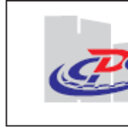Ginkgo biloba Extract EGb 761 and Its Specific Components Elicit Protective Protein Clearance Through the Autophagy-Lysosomal Pathway in Tau-Transgenic Mice and Cultured Neurons.
Keywords
Abstract
Alzheimer's disease (AD) is a neurodegenerative disease pathologically characterized by extracellular amyloid-β (Aβ) deposits and intracellular neurofibrillary tangles (NFT) in many brain regions. NFT are primarily composed of hyperphosphorylated tau protein (p-Tau). Aβ and p-Tau are two major pathogenic molecules with tau acting downstream to Aβ to induce neuronal degeneration. In this study, we investigated whether Ginkgo biloba extract EGb 761 reduces cerebral p-Tau level and prevents AD pathogenesis. Human P301S tau mutant-transgenic mice were fed with EGb 761, added to the regular diet for 2 or 5 months. We observed that treatment with EGb 761 for 5 months significantly improved the cognitive function of mice, attenuated the loss of synaptophysin and recovered the phosphorylation of CREB in the mouse brain. Treatment with EGb 761 for 5 but not 2 months also decreased p-Tau protein amount and shifted microglial pro-inflammatory to anti-inflammatory activation in the brain. As potential therapeutic mechanisms, we demonstrated that treatment with EGb 761, especially the components of ginkgolide A, bilobalide, and flavonoids, but not with purified ginkgolide B or C, increased autophagic activity and degradation of p-Tau in lysosomes of neurons. Inhibiting ATG5 function or treating cells with Bafilomycin B1 abolished EGb 761-enhanced degradation of p-Tau in cultured neurons. Additionally, we observed that 5- instead of 2-month-treatment with EGb 761 inhibited the activity of p38-MAPK and GSK-3β. Therefore, long-term treatment with Ginkgo biloba extract EGb 761, a clinically available and well-tolerated herbal medication, ameliorates AD pathology through mechanisms against multiple AD pathogenic processes.




